10 curiosities about the high poet you may not know
We Tuscans are very proud to have given birth to Dante Alighieri - but how much do we really know?
On Dante, according to Jacopo Alighieri diminutive of Durante, many have written and rewritten.
We still want to try to give you some curious goodies.
Do you know his story?
10 curiosities about the high poet, born around 1265 in Florence, by all considered the father of the Italian language.
- In love with Beatrice, but married with four children
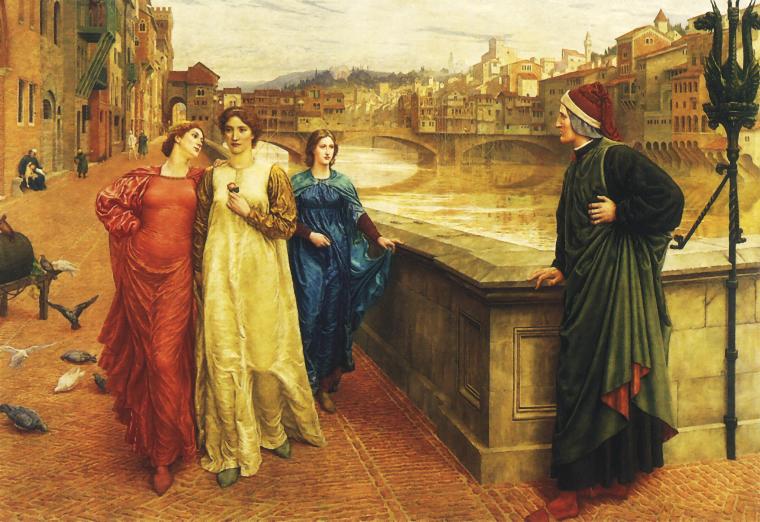
Much of Dante's work is devoted to the figure of Beatrice, met at the age of nine and died young, after marrying another man. It's all very romantic, isn't it?
However, the good Dante had a wife and four children, who were probably not very happy with this unrequited love.
Dante married Gemma Donati at a young age, but there are no direct and explicit allusions to his wife or to one of his children: Jacopo, Peter, Giovanni and Antonia.
-
Inventor of the third rhyme; Dante's triplets
Consisting of three endecasillabial verses,it is called a "chain rhyme" because it consists of cross rhymes. The scheme is this: ABA, BCB, CDC, DED, etc. and Dante was the first to use it.
A classic example of the famous intro of Hell demonstrates its beauty and simplicity.
In the middle of the journey of our lives (A)
I found myself in a dark forest, (B)
because the straight way was lost. (A)
Alas what it was hard (B)
wild and rugged and strong forest (C)
that in the pensier renews fear! (B)
-
Dante had an impressive memory
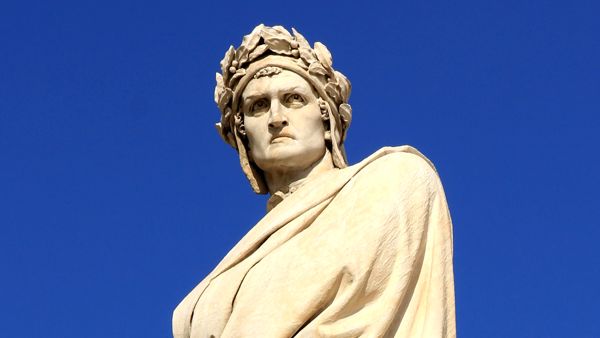
It is said that Dante always loved to sit on the usual stone, precisely at today's civic no 54 in Piazza Duomo in Florence, while watching the construction of the basilica of Santa Maria del Fiore. One day a passer-by asked him what his favorite dish was. "The Ovo," the bard replied.
After a year, the same man met Dante, sitting on his favorite stone, and asked him at point-blank range, "With what?" Dante immediately replied, "Co' the salt."
-
Ahead of schedule
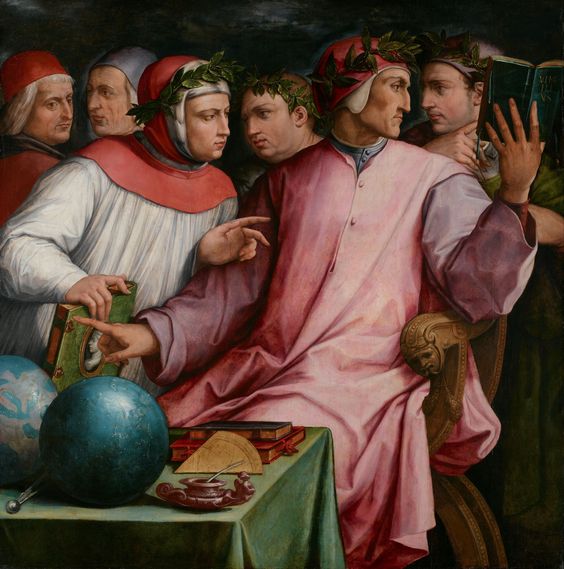
Maybe if you studied him in high school, you might not have considered Dante to be a "modern" writer, but in many ways he was really ahead of his time.
In addition to being one of the first to abandon the use of Latin for literary texts; created the idea of Limbo,where innocent people, who were not Christian, could rest in peace. It sounds like platitudes, but before that it was a common belief that babies born dead, or not baptized, and pagans ended up directly in hell.
-
Rehabilitated only in 2008
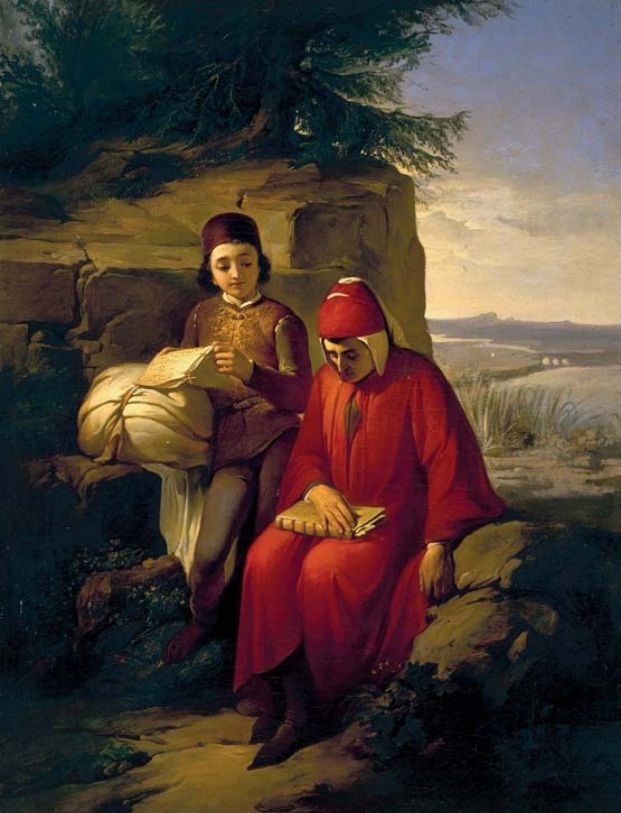 The Tuscan poet was also a politician and was sent into exile.
The Tuscan poet was also a politician and was sent into exile.
A member of the white guelfi,Dante was forced to abandon Florence when the black guelfi came to power.
In 1302 a sentence condemned him thus: "Alighieri Dante is convicted of bartering, fraud, falsehood, arson, malice, unfair extortionist practices, illicit proceeds, pederasty, and he is sentenced to 5,000 forints of fine, perpetual prohibition from public office, perpetual exile (in absentia) and if you take it, at the stake, so that it dies".
He died in Ravenna in 1321 without ever seeing Florence again. Only in 2008, the Culture Commission of Palazzo Vecchio voted for his rehabilitation.
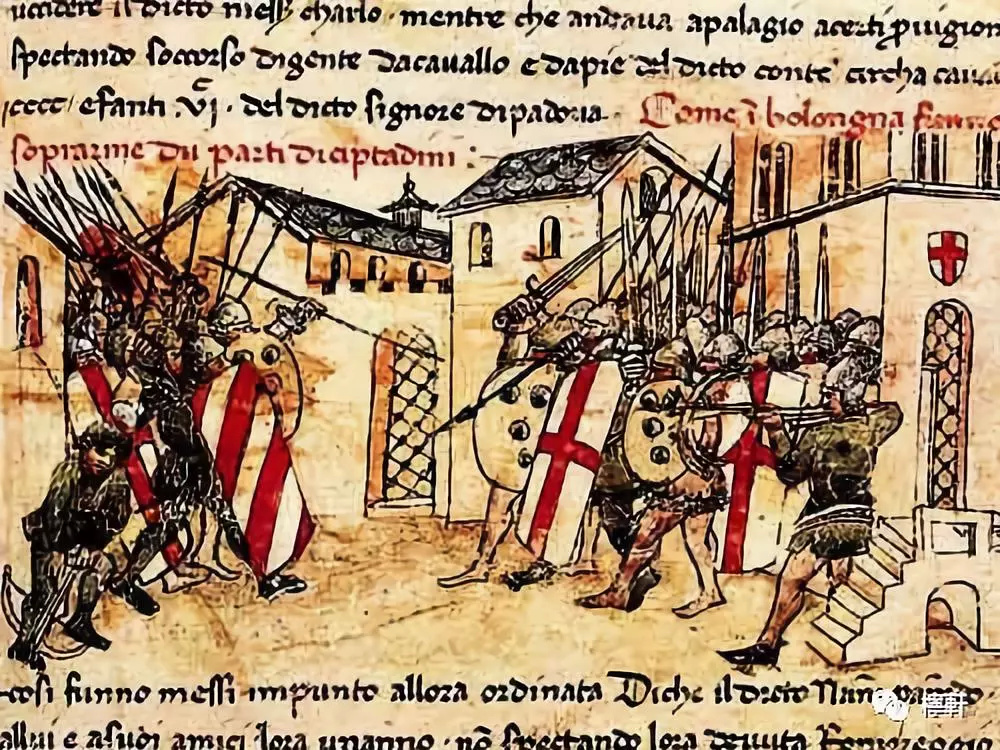
-
Famous for its sincerity
Dante had a reputation as an honest man; a legend states that, when he was exiled from Florence, a masked Dante was stopped by the authorities who asked him if he knew where Dante was. Although his life was in danger, he was so determined not to lie that he tricked them into saying, "When I was going down the street, he didn't pass me."
-
All-Tuscan irony
During his stay at the court of the Scaligeri, it was clear that the lords of Verona cared more about the court buffoon than the High. When someone pointed out to him that indecorous situation, the Tuscan genius answered without breaking down: "I am not surprised at all: every like him loves his fellow man".
-
All-Tuscan Irony - Part II
The Poet is called into play in one of the most irreverent songs of the minstrel Riccardo Marasco, "The Flood" linked to the flood of Florence in 1966.
"Dante of marble, divine poet,
aims outraged the huge mess
"Or Florentines you have exiled me...
take the shit God sent you!"
-
Affected by epilepsy or narcolepsy?
Dante's continual failings in Hell, but also in the other songs, are well imprinted on those who have read and studied it: what if he had described the symptoms of a disease?
In this sense, Lombrosian psychiatry had diagnosed Dante as suffering from epilepsy, a disease of which he seems to have suffered from an early age; others, however, believe that he was suffering from a severe form of narcolepsy.
-
Dante's profile
The Museum of the House of Dante in St. Margaret's Street, is a building built in the place where, most likely, stood his home. Created to offer tourists, and not only, a place to find traces of the Poet, whose remains do not rest in Florence, it offers an additional attraction: on a slab of the floor near the Museum you can see the profile of Dante. The origins of this particular and sympathetic attraction are ignored.
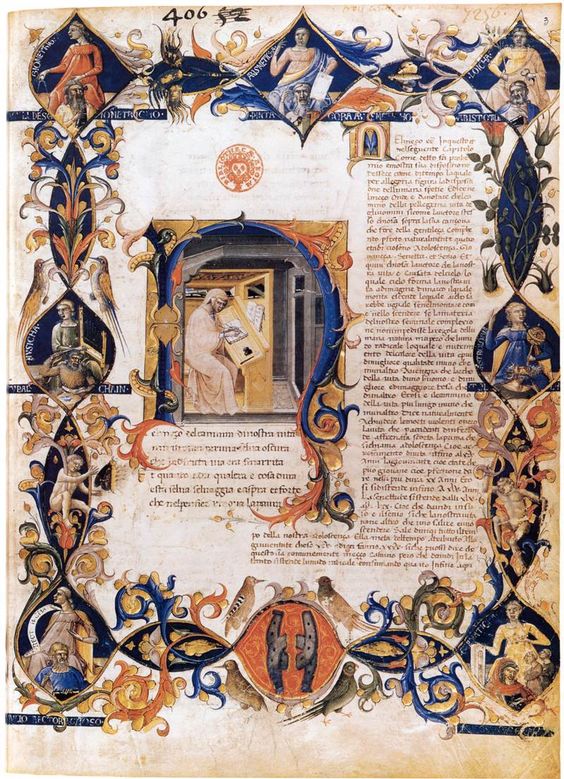
Dante and his work paved the way for vernacular literature,which was previously considered too "low".
Our culture, beyond these 10 curiosities, to the high poet owes so much,so much so that some expressions of the Divine Comedy have now become commonplace as for example: "Without infamy and without praise", "What made chief has" or "Stay cool".
Image sources: istituto tecnico per il turismo livia bottardi, wikipedia, pinterest, traveling in tuscany, firenze today
